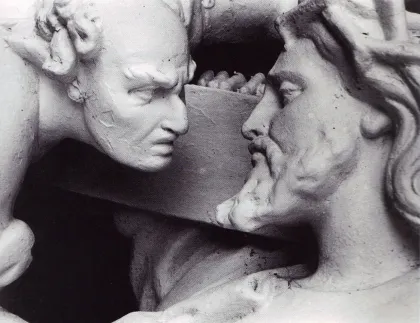Matthew Chapter 26
Matthew Chapter 26 - 2011-09-02
Finishing the discourse of Christ concerning the destruction of Jerusalem, and of the time of the end, and of His return, which is contained in Matthew chapters 24 and 25, hopefully we saw how these things which He said, and the parables which He left us concerning the troublous times, the ten virgins, the wicked servant, and the sheep and the goat nations, all meshed with the many other prophecies concerning those same things, and that at the end of days and the return of Christ, all of His enemies are destroyed, and in the end there are none left but the sheep. This is the true promise of Christianity, when we shall indeed have heaven on earth, which is what Christians everywhere should pray for incessantly just as Yahshua Christ Himself had instructed us to pray, that things be “on earth as they are in heaven” when His kingdom comes. And it shall indeed come. Here we shall proceed with Matthew chapter 26
XXVI 1 And it came to pass that when Yahshua had finished all these sayings, He said to His students: 2 “You know that after two days it shall be Passover, and the Son of Man is handed over for which to be crucified!”
First, here we see Matthew tell us that now Yahshua had “ had finished all these sayings”, so we see that this marks the end of the discourse which began at the beginning of Matthew chapter 24 where the apostles had initially asked Him about the pending destruction of Jerusalem and the time of the end.
3 At that time the high priests and the elders of the people gathered together in the court of the high priest who is called Kaïaphas, 4 and they took counsel that with guile they shall seize and kill Yahshua. 5 But they said: “Not on the feast, in order that there would not be a tumult among the people!”






 Please click here for our mailing list sign-up page.
Please click here for our mailing list sign-up page.







